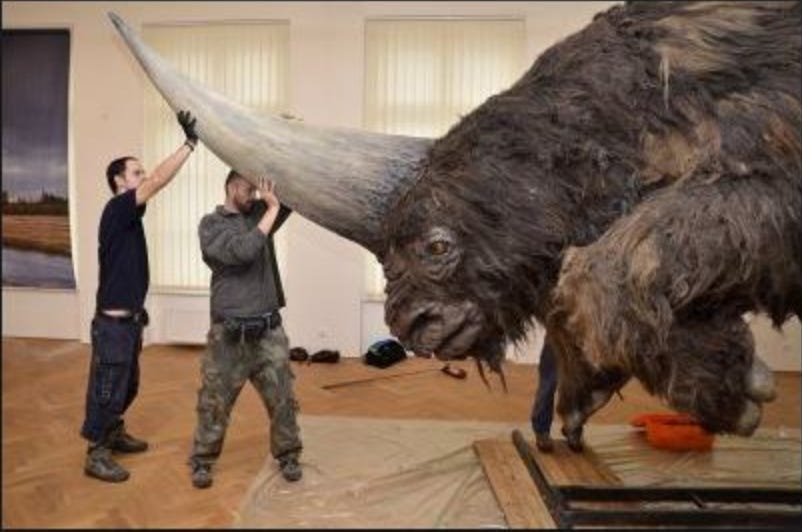The 1611 King James Bible uses the word “unicorn” several times. Most people might be thinking: “Isn't that a mythical creature?” Should the translators have used a different word instead? Find out in this video!
Download: https://www.sugarsync.com/pf/D6712966_09828263_8913714
While modern translations typically translate re’em as “wild ox,” the King James Version (1611), Luther’s German Bible (1534), the Septuagint, and the Latin Vulgate translated this Hebrew word with words meaning “one-horned animal.” For example, in Deuteronomy 33:17, the Latin Vulgate uses the word rinocerotis (rhinoceros) and the Septuagint uses monokerōtos (lit. “one horn”) for the word translated as unicorns in the 1611 King James Bible. The Dutch Bible (published soon after the King James), the Spanish Bible, Italian Bible, Luther’s German Bible (all of which predated the 1611 English version), and the earlier English Bibles (Wycliffe’s, Tyndale’s, Coverdale’s, Bishop’s, and Geneva) all reflected the “single-horned” understanding of the word.
The biblical unicorn is consistently used as a symbol of strength, so we would expect it to be a powerful creature. More recently, a fossilized horn from elasmotherium was discovered. The elasmotherium Sibericum, an extinct giant rhinoceros fits nicely with the biblical unicorn. It’s 33-inch-long skull has a huge bony protuberance on the frontal bone consistent with the support structure for a massive horn. Below are the verses that talked about unicorns in the bible:
Numbers 23:22 “God brought them out of Egypt; he hath as it were the strength of an unicorn.”
Numbers 24:8 ”God brought him forth out of Egypt; he hath as it were the strength of an unicorn: he shall eat up the nations his enemies, and shall break their bones, and pierce them through with his arrows.”
Deuteronomy 33:17 “His glory is like the firstling of his bullock, and his horns are like the horns of unicorns: with them he shall push the people together to the ends of the earth: and they are the ten thousands of Ephraim, and they are the thousands of Manasseh.”
Job 39:9 “Will the unicorn be willing to serve thee, or abide by thy crib?”
Job 39:10 “Canst thou bind the unicorn with his band in the furrow? or will he harrow the valleys after thee?”
Psalms 22:21 “Save me from the lion’s mouth: for thou hast heard me from the horns of the unicorns.”
Psalms 29:6 “He maketh them also to skip like a calf; Lebanon and Sirion like a young unicorn.”
Psalms 92:10 “But my horn shalt thou exalt like the horn of an unicorn: I shall be anointed with fresh oil.”
Isaiah 34:7 “And the unicorns shall come down with them, and the bullocks with the bulls; and their land shall be soaked with blood, and their dust made fat with fatness.”
Julius Caesar described unicorns in his Gallic Wars Book 6, Chapter 28, as:
“… a little below the elephant in size, and of the appearance, color, and shape of a bull. Their strength and speed are extraordinary; they spare neither man nor wild beast which they have espied… Not even when taken very young can they be rendered familiar to men and tamed. The size, shape, and appearance of their horns differ much from the horns of our oxen. These they anxiously seek after, and bind at the tips with silver, and use as cups at their most sumptuous entertainments.”
The 1611 King James Bible clearly describes unicorn as a real animal. The unicorn mentioned in the bible was a powerful animal possessing one or two strong horns — not the fantasy animal that has been popularized in movies and books. Whatever it was, it is now likely to be extinct like many other animals. Modern bible versions call it a “wild ox” or a “buffalo,” pandering to fairy tales and diminishes the truth of God’s holy word.

















Unicorns in the bible